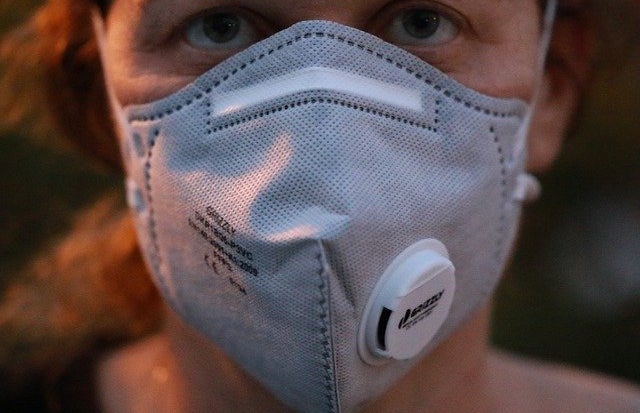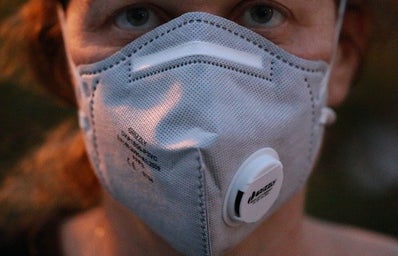In late April, Bob Stickles woke up.
About a month earlier, on March 26, Stickles was admitted into Valley Hospital in Ridgewood, New Jersey with dangerously low blood pressure. He was in need of oxygen and was told he would be able to go home the next day. He had been tested for coronavirus after experiencing fatigue and loss of appetite but awaited his results with no real concern. He thought he had a bad cold or a mild flu.
The doctors told Stickles, a 71-year-old man with pre-existing heart conditions, and his wife Vicki that if it was COVID-19, his condition would take a serious turn for the worse. Even with this warning, Bob and Vicki were wholly unprepared for the struggle they’d undergo throughout the following three months.
Just before the doctors put Stickles on a ventilator and thus into a medically induced coma, he spoke nine words to Vicki–“Well, I guess this was worse than we thought.”
Vicki was told that Bob was in “critical condition.” Vicki informed the rest of my family, and my dad broke the news to me. Uncle Bob became the third person in my family to be diagnosed with COVID-19.
Highly educated with a bachelor’s degree from Princeton, a doctorate in education from Columbia and a J.D. from Rutgers, Stickles was an educator turned lawyer educator again. Most recently, Bob worked as president at DePaul Catholic in Wayne and Morris Catholic in Denville. Despite his recent retirement, Bob continued to fill in when Catholic schools needed a temporary leader and to show support for his former students, especially at their sporting events.
On March 10, Stickles attended a Roselle Catholic basketball game where no one was wearing masks. It was a time before the American government instructed its citizens to wear masks. It was before quarantine. It was when many others, like my Pop-Pop, contracted the virus and lost their lives where governmental warning, instruction and transparency could have spared them. This is when he is sure he contracted the virus.
Bob Stickles was not expected to live either. Throughout his 99 days of treatment, 76 of which were spent on a ventilator, Stickles approached death approximately 10 times. Hospital staff members warned Vicki several times that her husband was not likely to recover, often telling her they hoped they wouldn’t have to call her again that night. Suffering symptoms herself, Vicki quarantined, simply praying for Bob’s safety, but without her family by her side, it was excruciatingly difficult.
In the first few weeks after Bob was admitted, Vicki told NJ.com that she felt like she was going crazy. She couldn’t watch the news or TV because the constant references to COVID-19 reminded her too frequently of her pain. She prayed nightly and her community helped as well, sharing prayers and running errands for her whenever they could.
Uncle Bob remained in my family’s prayers, and as I asked God why he would take my Pop-Pop so suddenly, I begged him not to take more of my family too. Similarly, any mention of COVID-19 ripped me apart. All we had was hope.
On April 25, a technician was giving Stickles a sponge bath when he woke up. Until that moment, he didn’t know that he had COVID-19.
Bob had lost 50 pounds during his time spent in a coma. When he woke up, he was unable to talk or move, his muscles having atrophied so severely. In Vicki’s first FaceTime call to Bob, she didn’t know if her husband was even still there. But through the screen, Stickles looked back at his wife and silently blew her a kiss. It was then that Vicki knew her prayers had been answered.
The road to recovery, however, would not be easy.
On May 21, Stickles was moved to a long-term care facility in Rochelle Park, where he was weaned off the ventilator over the course of the next 20 days.
On June 12, Bob was moved yet again from LTACH in Rochelle Park to Kessler Rehabilitation Center in Saddle Brook. During his transfer, Vicki was able to see Bob briefly for the first time in nearly three months. From his stretcher, Bob waved with one hand and reached out to Vicki with the other. “I just ran to it and grabbed it,” Vicki told NJ.com. “It was just heaven.”
Stickles made quick progress throughout his time at Kessler. He relearned how to walk, swallow, get in and out of a car, put on socks and other “activities of daily living.” After 92 days apart, Vicki and Bob spent more than a few moments together when Vicki came to Kessler to learn how to assist Bob. A week later, he was released.
“It spooks me to say this out loud, but it’s the truth,” Bob said emotionally. “I was expected to die.”
In his first time outside since March 26, Stickles looked around in disbelief that he was still alive. “It was just wonderful,” he said, choking up. “The trees and the grass and the flowers, just fantastic. And for a couple minutes, I couldn’t get out of the car. I just felt so lucky. Like, how did I get so lucky? What did I do to deserve this?”
“I know it sounds stupid…but it’s for real,” he said. “I look at everything, and I just marvel at it. I really do. I marvel at it.” Believing there’s a newfound purpose to his spared life, Bob has already dedicated the rest of his time on Earth to figuring it out.
Worried Stickles is not immune from getting the virus again, Vicki and Bob are still extra careful. Vicki always wears a mask around him and sleeps on an air mattress instead of in their bed. “He cannot go through this again, I cannot go through this again, so we are extremely careful,” she stated.
“Having come this close to actually dying, I’ve come to understand how much I love to live,” Bob told NJ.com. “I have not been sufficiently grateful for all the blessings I’ve had in my life. I have not been sufficiently grateful. And I’m going to work on that.”
Vicki and Bob both realize that they are proof of the destructive power of COVID-19 and are dedicated to spreading awareness through their story. In a YouTube video from NJ.com, Bob and Vicki warn others to protect themselves. “We should all be on the same page,” Bob noted wisely. “I mean having gone through this, I can tell you, nobody wants to do this. You should take whatever steps you can to keep yourself safe and to keep the people around you safe. I mean this is serious business.” Vicki ends the video with the universal message of, “It’s real. It’s out there. Prevent it.”
Despite their heart-wrenching story and genuine message, many are still unwilling to accept the virus’ severity, a sad truth displayed in the comments section of the videos telling my Uncle Bob’s story.
“It’s Murphy’s media wing scaring NJ residents into complying to willfully allow Murphy to take your rights away,” one comment read, referring to the commenter’s belief that wearing masks is a violation of citizens’ rights.
Another read, “A ‘virus’ so terrible, so horrendous that you have to be tested to know if you’ve even had it. What a joke this whole thing has been!” The comments underneath this statement were progressively worse, one questioning, “Why doesn’t the MSM make a big deal and keep tabs on the amount of abortions? Why are [Americans] freaking out about corona deaths? It still hasn’t even matched the abortion numbers.”
A similarly enraging comment stated, “a virus so deadly that senior citizens can survive it,” clearly showing the commenter did not watch the video or listen to the statistic that Stickles was 1 of 20 people in his condition to survive.
Vicki and Bob were also accused of fear mongering and attempting to shade “logic and reasoning” by instilling “emotion and fear” within the population.
The reality is that the negative comments on the videos of their story outnumber the positive. However, the comment that personally affected me the most was, “they look just fine to me.” Thankfully, they are fine now. But they weren’t. They’ve both suffered physical and emotional trauma. Bob has a long recovery ahead of him, and Vicki can’t even sleep in the same bed as her husband. They have a 99-day medical bill to pay, that hopefully, with the help of insurance, won’t send them down a river.
And they are the lucky ones. Others are still fighting for their lives. Others have survived, but are in conditions much worse. Others, like my Pop-Pop, lost their lives.
It is painful to see that there are people still brainwashed by those who preach that the virus is a hoax or that masks are unconstitutional. It is saddening that the President’s initial message that the seasonal flu is worse than this virus has stuck with so many. And it is terrible that people could hear someone’s story, could listen to someone’s pain, and immediately dismiss it as invalid. I pray that those with this mindset don’t have to learn their lesson from experience because despite the rage their ignorance brings upon me, I wouldn’t wish the pain my family has gone through on anyone.
Hateful comments cannot diminish the magnitude of my family’s pain, the strength of my Uncle Bob, or the death of my Pop-Pop. However, if there is a lesson to be learned from my Uncle Bob’s story, it’s that this virus isn’t something to be taken lightly. We can get through this, but it’s harder when people willingly risk theirs and others lives due to ignorance and simple carelessness.
I can only hope that through sharing my Uncle Bob’s 99-day struggle, more people can come to care about the coronavirus and truly understand its destructive capability.
Sources:
Remo, Jessica. “The Survivor: He Battled COVID-19 for 99 Days. Now He’s Asking God Why He Got a Second Chance.” NJ.com, 8 Aug. 2020, www.nj.com/coronavirus/2020/08/the-survivor.html.
“COVID-19 survivor and his wife warn others to protect themselves.” Youtube, uploaded by NJ.com, 8 Aug. 2020, https://www.youtube.com/watch?v=r4ww5KnQCQ4.
“Survivor of COVID-19 feels blessed and lucky to be alive.” Youtube, uploaded by NJ.com, 8 Aug. 2020, https://www.youtube.com/watch?v=X277W_aLHSE.



